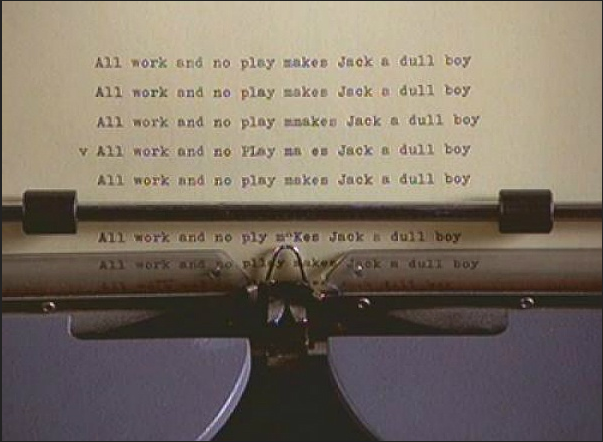 Going through all of Stephen King’s works sounds like a beastly task, but it’s also an insightful one. King is the modern master of horror for a reason, tapping into every ghost, ghoul, and inner fear his audience would rather hide. Some of his most telling work though, is about the persona behind the pen. The Shining, Misery, and the novella, Secret Window, Secret Garden, all deal with authorly protagonists. Jack Torrance, an troubled aspiring author and alcoholic whose personal demons, hotel ghosts, and artistic failures all drive him to kill. And Paul Sheldon, a mild-mannered, famous author who finds himself held captive by his biggest fan, forced to revive a popular series he has decided to end. Misery is the sort of book every writer’s group makes jokes about as an “author’s worst nightmare.” Annie Wilkes is the monster that destroys manuscripts, fuels co-dependency, and chops off fingers (don’t lie- you know you flinched). But King tapped into something far more terrifying with Mort Rainey. In Secret Garden, Secret Window (better known for Secret Window, a 2004 film adaptation with Johnny Depp as the lead), Mort Rainey comes into conflict with John Shooter, an unstable stranger that has plagiarized his latest story- all but its ending anyway. Several arson cases and violent deaths later, Mort realizes (and spoilers here, so be warned) that there was never any John Shooter at all. Mort is John Shooter, a character so powerful that he has become part of Mort’s personality. While the movie and novella end on different notes (somewhat creepy when you consider the plot), the message retains its prowess. Sometimes our monsters aren’t disturbed fans or old spirits; sometimes the author is the monster. This has a rocky history of playing itself out in real life. Creative folk get a rep for being weird at best, and deviant or disturbed at worst. They are statistically more inclined to depression and anxiety, drawn heavily to drugs and drinking (all of King’s authors had problems with drug abuse and/or alcoholism, notably), and usually do not fit in to what we might call “normal.” What we seek and do is very lonely at times, and this lifestyle is not a path most desire to tread. I have a vivid memory of the first time I got in a fight with a professor: after a classmate’s sobering presentation on young musicians, mental illness, and suicide, she dared to call me out and ask why “all artists are depressed freaks? That means you’re a freak too, right?” I shot up in my seat at once. “Yes, and I’m proud of that.” I’ve reflected on this incident since, wondering about this “depressed freak” stereotype and how much truth exists in its shadow. Writers are only people, after all; we have the potential to be bullies to reviewers, terrors to our family, and destructive forces on ourselves. There are writers from the past, whose choices reflect racial and social beliefs that shock a modern audience. Several people have even made a career of writing about their crimes, turning horrors into art. They are social outcasts like Wilde, or dark cultish personalities like Hubbard. King himself has a notorious reputation from taking out his rage on the man who accidentally hit him with a car. He was destroyed as a character in King’s fiction, and legally ruined in real life. His reputation didn’t recover before his early death. Authors aren’t always good people, probably because they are people in the first place. No matter how idealized and golden their created worlds may be. Does that mean a story get take on the judgement that we cast on the author? Depends on the reader, I suppose, but I would much rather let a story stand outside of an author’s shadow- as much as it possibly can anyway. We are imposing strange creatures at times, but we all write to express a certain secret honesty out into the world. Whether that truth gives away of our inner darkness away really comes down to the author, and whether the reader wants to know said author quite so intimately. Interestingly enough, the statistical number of fiction authors who are real-life killers is quite low compared to King’s characters. Studies have shown though that psychopathy and a lack of empathy isn’t commonly connected with artistic traits. Indeed, most serial killer authors tend to write more about themselves than anyone else. It begs the question though- why writers choose to portray other fictional writers as monsters? What kind of “freak” do we see when we create, and are we scared of it too?
0 Comments
Leave a Reply. |
About MeCaitlin Jones is an author, film editor, and lover of all things Victorian and fantastic. Please check in for information on her upcoming series. Archives
August 2020
|
 RSS Feed
RSS Feed
